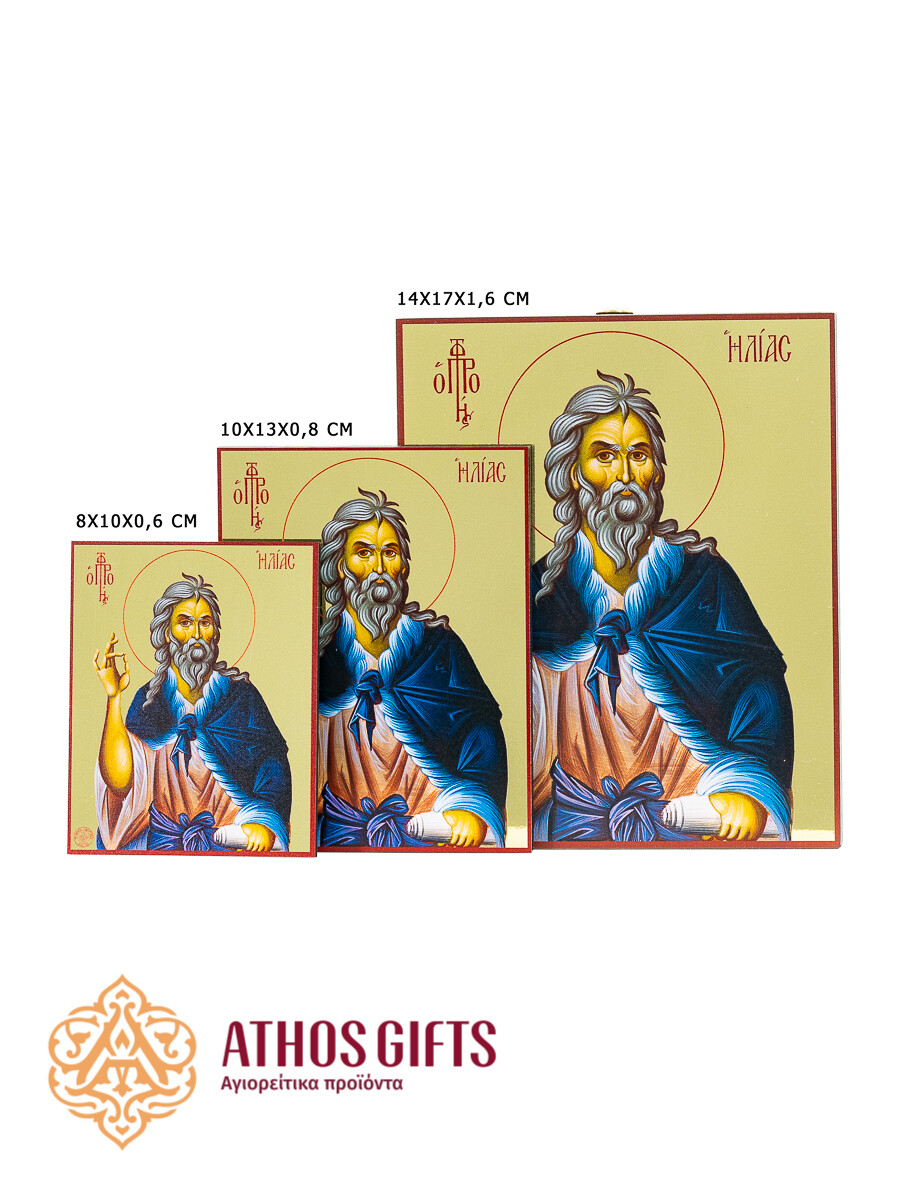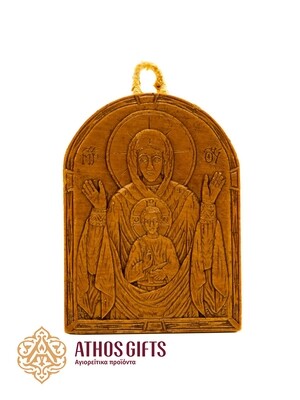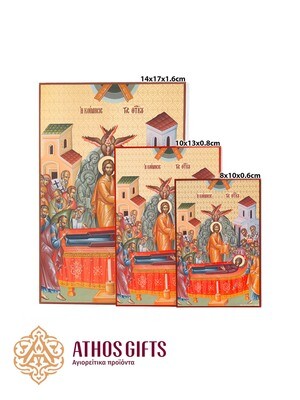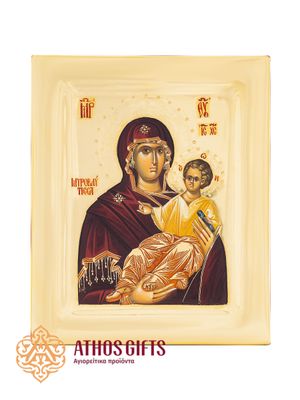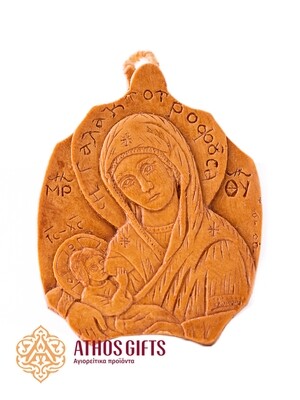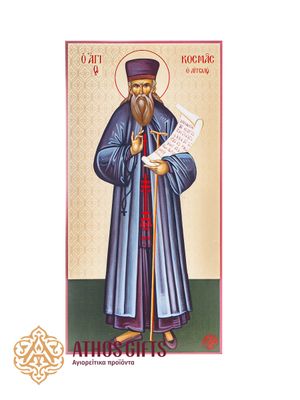Elijah the Prophet
The icon is made on a particle board with the use of the most advanced imprinting and production techniques. The background is decorated in a way that gives the impression of glossy gilding.
The skete of Elijah the prophet in Mount Athos was founded by the Russian monk Paisius Velichkovsky. Soon after, large buildings and a magnificent central church were added to it. In this skete, which belongs to the monastery of Pantokratoros, unique relics are kept.
According to the Old Testament, Elijah the prophet did not die but was taken up to heaven in a chariot of fire.
Chapels named after Elijah the prophet are usually built in the mountains. His whole life is connected with the mountains, where he performed great miracles. People turn to him in times of drought to intercede before the Lord for rain. Also, the holy fathers interpreting Revelation say that since Elijah the prophet did not die, he will be the one who will come in the last times to strengthen Christians against the Antichrist.
Elijah the prophet has a special place among the prophets of the Old Testament. Christ Himself refers to Elijah the prophet many times in the gospel.
Most importantly, the three disciples of Christ, Peter, James and John, at the Transfiguration (Metamorphosis) of Christ on Mount Tabor, saw two prophets, Moses and Elijah, conversing with Jesus Christ. All this shows the special place of Elijah among the prophets and in the minds of people.
Elijah the prophet lived in the ninth century B.C. He was a native of the city of Tishbe, now El Istib in the region of Gilead. When he was born, his father had a divine vision: two men in white robes called the baby Elijah, swaddled him with fire and fed him with flames. His father went to Jerusalem and, after describing the vision to the priests, told them, interpreting the vision to mean that his son would become a prophet and judge Israel with a double-edged sword and fire.
Elijah the prophet used his prophetic gift for 25 years during the reign of King Ahab, who reigned from 873 to 854 B.C. Ahab and his wife Jezebel were ungodly people, and it was against them that the prophet fought and preached. Jezebel persecuted Elijah the prophet as Herodias persecuted John the Baptist.
The great sign that Elijah the prophet gave was that after he prayed to the Lord, the sky has shut and there was no rain for three years and six months. At that time the prophet was hiding in a cave by a stream behind the Jordan River. There was some water there, and a raven would bring him food every morning.
When the water dried up, the prophet left and, following God's command, went to Sarepta in Sidon. There he stayed with a widow who had some flour and some butter, and they ate constantly and had no shortage. The widow had a child who at some point fell ill and died. Then the prophet began to pray and raised the child. Because of this miracle, Elijah the prophet is revered as the patron saint of bakers; therefore, bakeries do not work on the day of his memory, July 20.
